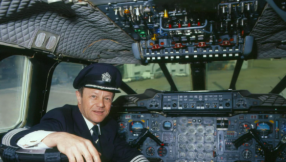Darfur violence at risk of spreading
U.N. peacekeeping chief Jean-Marie Guehenno said the situation had deteriorated in the western Sudanese region with an attack late last month by armed men on an African Union base and reports of a government attack on another town on Monday.
"I am very concerned with that," Guehenno told a news conference. Combined with recent clashes between the government and rebels in the neighboring Kordofan region, "there is a serious risk of the Darfur situation going beyond Darfur."
Just weeks before AU-U.N.-mediated peace talks are to start in Libya on Oct. 27, armed men in 30 vehicles descended upon an AU peacekeepers' base on Sept. 29 near the town of Haskanita in South Darfur, destroying the base and killing 10 peacekeepers.
Sudanese government forces subsequently occupied Haskanita, which was burnt to the ground and emptied of civilians. Rebel spokesmen said that on Monday government troops and allied militia attacked the rebel-held town of Muhajiriya.
Guehenno could not confirm who had sacked Haskanita but said: "It's very troubling that a city which was under the control of the government of Sudan could be burned down."
He said the incident provided important lessons for a planned 26,000-strong AU-U.N. peace force which is due to go to Darfur to take over from an existing AU force of less than 7,000 that has been overwhelmed.
"I think this incident shows the importance of having troops that are very mobile, with capacity to dominate any situation," Guehenno said. "And for that we need capacities that even with the strong effort of the African Union we do not have yet."
SPECIALIZED UNITS
Plenty of offers have come in for basic infantry for the new force, which Sudan wants to be primarily African, but U.N. planners are concerned about a lack of specialized units they say are more likely to come from developed countries.
In particular they are short of 18 transport helicopters and six light attack helicopters, plus crews, as well as ground transportation companies equipped with trucks, for a total of some 570 personnel.
"These capacities are vital -- we don't have them," Guehenno said. "It would be very dangerous if ... the situation in Darfur did not have the right resources. That would put in jeopardy all our efforts to stabilize this region."
A list of proposed troop contributors made public by the United Nations on Monday cited units to be provided by 15 countries, mostly from Africa, as well as an engineering company from unspecified Nordic countries.
Guehenno said the list had been agreed between the United Nations and African Union and was being discussed with the Sudanese government by a technical team currently in Khartoum.
He said the absence of helicopter and transportation units was the result of a lack of offers, not of any veto on specific countries by Khartoum.
Sudan's U.N. ambassador, Abdalmahmood Abdalhaleem, later told journalists his government would not accept helicopter pilots from the United States. He gave no reason and declined to be drawn on pilots from other countries.
Abdalhaleem denied his government had destroyed Haskanita and said it had been burned down by fleeing rebels. "Of course the government has no interest ... to burn it," he said.
Apart from Nordic states, proposed troop contributing countries are: Burkina Faso, Egypt, Ethiopia, Gambia, Ghana, Kenya, Malawi, Mali, Nigeria, Senegal, Bangladesh, Jordan, Nepal, the Netherlands and Thailand. African countries would account for 15,795 troops and non-African countries for 3,770. The figures do not include police, also part of the force.













